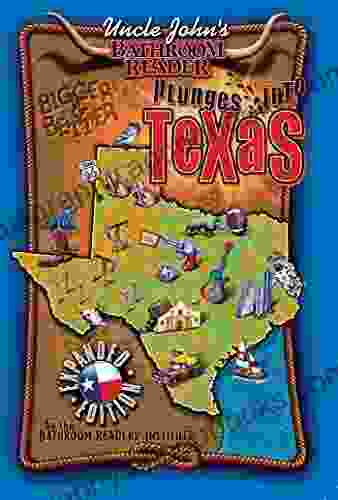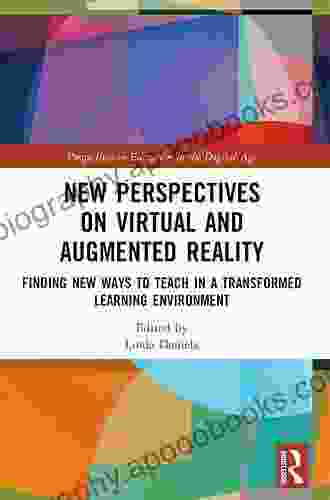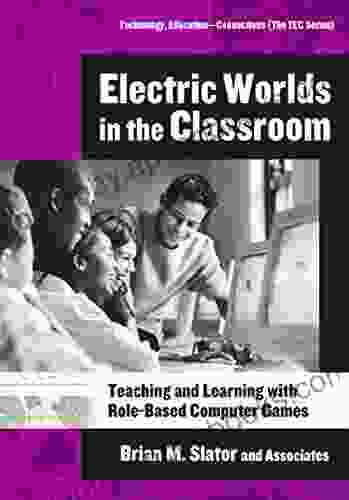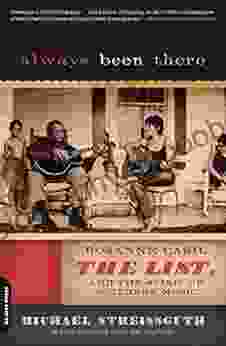Teaching and Learning with Role-Based Computer Games Technology Education: A Game-Changing Guide for Educators

In the rapidly evolving landscape of education, educators are constantly seeking innovative and engaging approaches to captivate students and ignite their passion for learning. Role-based computer games are emerging as a powerful tool in technology education, offering an immersive and transformative learning environment that empowers both educators and students.
5 out of 5
| Language | : | English |
| File size | : | 2243 KB |
| Text-to-Speech | : | Enabled |
| Screen Reader | : | Supported |
| Enhanced typesetting | : | Enabled |
| Word Wise | : | Enabled |
| Print length | : | 319 pages |
| Lending | : | Enabled |

The Power of Role-Based Computer Games
Role-based computer games are a type of digital game that immerses players in a virtual world where they assume specific roles and interact with others. By participating in these games, students can enhance their:
* Problem-Solving Skills: Games present complex challenges that require players to think critically, analyze situations, and develop creative solutions. * Collaboration and Communication: Many role-based games foster collaboration among players, encouraging them to work together and communicate effectively. * Critical Thinking: Games often require players to make decisions and evaluate their actions, developing their ability to think critically and make informed judgments. * Creativity and Imagination: The immersive nature of games allows players to explore different perspectives, imagine new possibilities, and express their creativity.
Role-Based Computer Games in Technology Education
The potential of role-based computer games extends far beyond entertainment. They can be effectively integrated into technology education to:
* Make Learning Interactive and Engaging: Games provide an engaging and interactive learning experience that captures students' attention and motivates them to learn. * Promote Project-Based Learning: Games can serve as platforms for project-based learning, allowing students to apply their knowledge and skills in real-world scenarios. * Foster STEM Education: Many role-based computer games incorporate STEM concepts, exposing students to science, technology, engineering, and math in an accessible and engaging manner. * Develop Digital Literacy: Games teach students essential digital literacy skills, such as navigation, communication, and problem-solving in a technology-rich environment.
Teaching with Role-Based Computer Games: Practical Strategies
Harnessing the power of role-based computer games in the classroom requires careful planning and implementation. Here are some practical strategies for educators:
* Align Games with Learning Objectives: Identify specific learning objectives and select games that complement and support those objectives. * Facilitate Gameplay: Provide students with clear instructions, technical support, and guidance as they navigate the game environment. * Encourage Collaboration: Foster teamwork and collaboration by assigning roles and tasks within the game. * Reflect on Learning: Dedicate time for students to reflect on their experiences in the game, identifying their learning gains and areas for improvement. * Assess Student Outcomes: Develop assessment strategies that measure students' progress and evaluate the effectiveness of the game-based learning experience.
Teaching and Learning with Role-Based Computer Games Technology Education is an essential guide for educators seeking to transform technology education through innovative and engaging approaches. By embracing the power of role-based computer games, educators can create immersive learning environments that foster problem-solving, collaboration, critical thinking, creativity, and digital literacy. Ultimately, this approach empowers students to become active participants in their own learning and prepares them for success in a technology-driven world.
5 out of 5
| Language | : | English |
| File size | : | 2243 KB |
| Text-to-Speech | : | Enabled |
| Screen Reader | : | Supported |
| Enhanced typesetting | : | Enabled |
| Word Wise | : | Enabled |
| Print length | : | 319 pages |
| Lending | : | Enabled |
Do you want to contribute by writing guest posts on this blog?
Please contact us and send us a resume of previous articles that you have written.
 Book
Book Novel
Novel Page
Page Chapter
Chapter Text
Text Story
Story Genre
Genre Reader
Reader Library
Library Paperback
Paperback E-book
E-book Magazine
Magazine Newspaper
Newspaper Paragraph
Paragraph Sentence
Sentence Bookmark
Bookmark Shelf
Shelf Glossary
Glossary Bibliography
Bibliography Foreword
Foreword Preface
Preface Synopsis
Synopsis Annotation
Annotation Footnote
Footnote Manuscript
Manuscript Scroll
Scroll Codex
Codex Tome
Tome Bestseller
Bestseller Classics
Classics Library card
Library card Narrative
Narrative Biography
Biography Autobiography
Autobiography Memoir
Memoir Reference
Reference Encyclopedia
Encyclopedia Alexandra Monir
Alexandra Monir Liz B Taylor
Liz B Taylor Emma Goldrick
Emma Goldrick Shawn Inmon
Shawn Inmon Alica Mckenna Johnson
Alica Mckenna Johnson Elle Charles
Elle Charles Emma Glass
Emma Glass Alexandra Lapierre
Alexandra Lapierre Jack London
Jack London Julia Stonehouse
Julia Stonehouse Caroline White
Caroline White Ramaz Jaiani
Ramaz Jaiani Stephen V Geddes
Stephen V Geddes Walter Isaacson
Walter Isaacson Luis Zaragoza
Luis Zaragoza Lisa M Nunn
Lisa M Nunn Book City
Book City Lana W Jackman Phd
Lana W Jackman Phd Naka Pillman
Naka Pillman Joseph Nowinski
Joseph Nowinski
Light bulbAdvertise smarter! Our strategic ad space ensures maximum exposure. Reserve your spot today!

 Timothy WardPyrenean Mastiff: The Ultimate Guide to Care, Behavior, Diet, Interaction,...
Timothy WardPyrenean Mastiff: The Ultimate Guide to Care, Behavior, Diet, Interaction,... Bradley DixonFollow ·6.5k
Bradley DixonFollow ·6.5k Melvin BlairFollow ·4.9k
Melvin BlairFollow ·4.9k Alexander BlairFollow ·12.4k
Alexander BlairFollow ·12.4k James JoyceFollow ·16.2k
James JoyceFollow ·16.2k Branson CarterFollow ·14k
Branson CarterFollow ·14k Branden SimmonsFollow ·18.3k
Branden SimmonsFollow ·18.3k Langston HughesFollow ·6.6k
Langston HughesFollow ·6.6k Miguel NelsonFollow ·15.2k
Miguel NelsonFollow ·15.2k

 Chuck Mitchell
Chuck MitchellUnveiling the Enchanting World of Ernesto Nazareth's...
A Musical Journey...

 Brent Foster
Brent FosterSusan Boyle: Dreams Can Come True
Susan Boyle's incredible journey from...

 Tom Clancy
Tom ClancyThe Movement and the Myth Provocations: Unveiling the...
In the realm of human...

 Edward Reed
Edward ReedUncle John's Bathroom Reader Plunges Into Texas: Bigger...
Uncle John's Bathroom...

 Justin Bell
Justin BellNew Perspectives on Virtual and Augmented Reality: A...
Dive into the Cutting-Edge World of...
5 out of 5
| Language | : | English |
| File size | : | 2243 KB |
| Text-to-Speech | : | Enabled |
| Screen Reader | : | Supported |
| Enhanced typesetting | : | Enabled |
| Word Wise | : | Enabled |
| Print length | : | 319 pages |
| Lending | : | Enabled |












